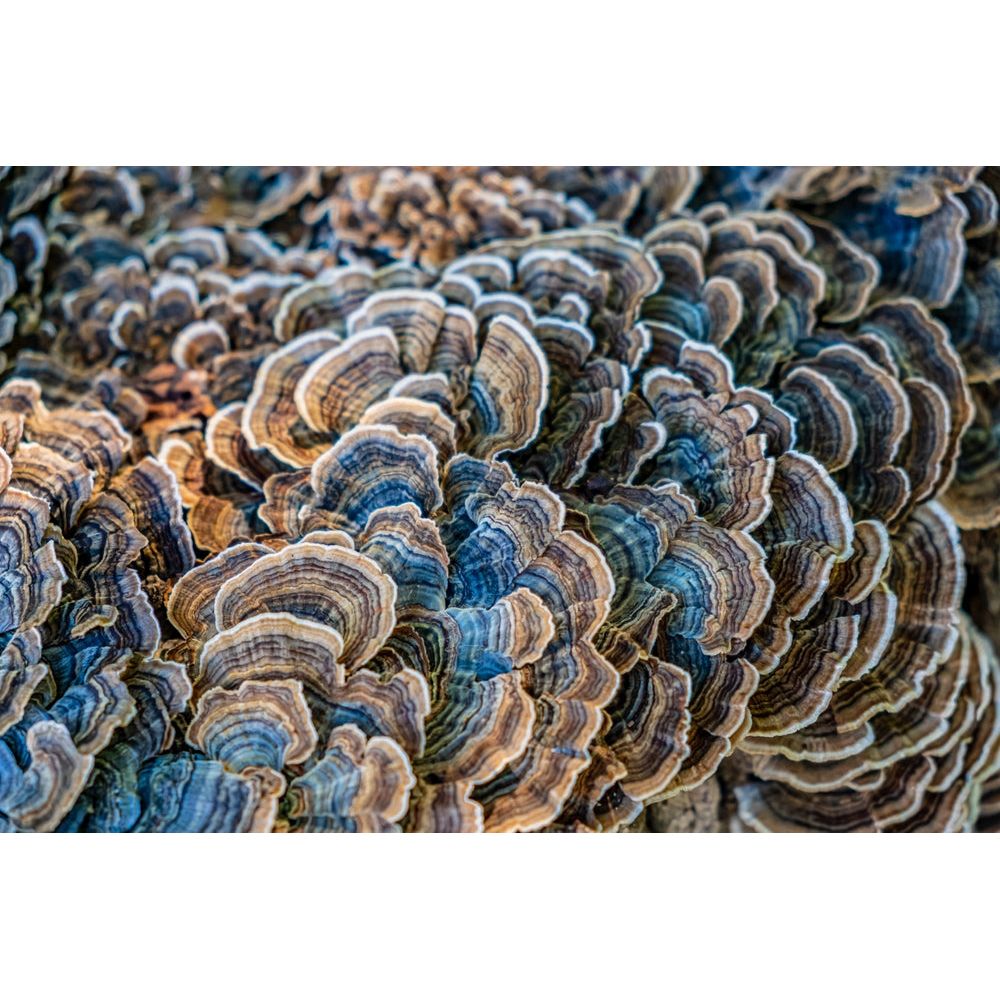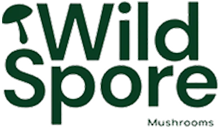
Turkey Tail Mushroom: A Comprehensive Guide
10/11/24Share
When choosing a medicinal mushroom supplement, opt for products made from 100% fruiting bodies to ensure you're getting the most potent and effective supplement possible. By understanding the differences between mycelium and fruiting body products, you can make an informed decision and maximize the potential health benefits of medicinal mushrooms.
Table of Contents
What is Turkey Tail Mushroom?
- Scientific name: Trametes versicolor or Coriolus versicolor
- Appearance: Striped like a turkey's tail with brown, tan, gray, and white colors
- Growing habitat: On dead hardwood trees worldwide
- Japanese name: "Kawaritake" or "cloud mushroom"
- Chinese name: "Yun Zhi"
Historical and Cultural Significance
- Used in Traditional Chinese Medicine (TCM) for centuries
- Symbolizes longevity, health, spiritual attunement, and infinity in Asian cultures
- Traditionally used to support immune function and fight infections
Health Benefits
Turkey Tail mushrooms offer several health benefits:
- Immune System Support
- Contains polysaccharides (PSK and PSP) that boost immune response
- Supports both underactive and overactive immune systems
- Gut Health
- Rich in prebiotics, supporting beneficial gut bacteria
- Improved gut health correlates with a stronger immune system
- Antioxidant Properties
- Contains flavonoids and over 35 phenols
- Helps combat oxidative stress and premature aging
- Potential Weight Management
- Beta-glucans may help reduce obesity (based on animal research)
Bioactive Compounds in Medicinal Mushrooms
| Medicinal Mushroom | Bioactive Compounds |
|---|---|
| Reishi (Ganoderma lucidum) | Beta-glucans, triterpenoids (ganoderic acids), sterols, peptides |
| Shiitake (Lentinula edodes) | Lentinan (beta-glucan), ergosterol (sterol) |
| Maitake (Grifola frondosa) | Beta-glucans, ergosterol |
| Cordyceps (Cordyceps sinensis) | Cordycepin (nucleoside), beta-glucans, ergosterol |
| Lion's Mane (Hericium erinaceus) | Hericenones, erinacines, beta-glucans |
| Turkey Tail (Trametes versicolor) | PSK (beta-glucan), PSP (beta-glucan) |
| Chaga (Inonotus obliquus) | Betulinic acid (triterpenoid), melanin, beta-glucans |
Key Bioactive Components
| Component | Action | Benefit |
|---|---|---|
| Polysaccharides (PSP, PSK) | Immune support | Promotes healthy gut microbiome |
| Phenols and flavonoids | Antioxidant | Combats oxidative stress |
| Protein-bound Beta-glucans | May reduce obesity | Supports beneficial gut bacteria |
Conclusion
When choosing a medicinal mushroom supplement, opt for products made from 100% fruiting bodies to ensure you're getting the most potent and effective supplement possible. By understanding the differences between mycelium and fruiting body products, you can make an informed decision and maximize the potential health benefits of medicinal mushrooms.
Frequently Asked Questions
Understanding Mushroom Supplements: Extracts vs. Whole Mushroom Powders
Two Main Types of Mushroom Supplements
- Whole Mushroom Powders (Full Spectrum)
- Mushroom Extracts
Whole Mushroom Powders (Full Spectrum)
What they are:
- Made from the entire mushroom (fruiting body and mycelium)
- Minimally processed
What they contain:
- All natural nutrients from the mushroom
- Beta-glucans, antioxidants, fiber, enzymes, proteins, vitamins, and other bioactive compounds
How they're made:
- Harvest whole mushroom
- Steam to soften
- Dry with heated, filtered air
- Mill into fine powder
Mushroom Extracts
What they are:
- Usually made from just the fruiting body
- More processed than whole mushroom powders
What they contain:
- Concentrated amounts of specific compounds (like beta-glucans)
- May be missing some nutrients found in whole mushrooms
How they're made:
- Soak mushrooms in hot water or alcohol
- Extract specific compounds
- Concentrate the extract
- Turn into powder or liquid form
Key Differences
- Processing: Extracts are more processed than whole mushroom powders
- Nutrient profile: Whole mushroom powders contain more diverse nutrients
- Concentration: Extracts have higher concentrations of specific compounds
- Form: Extracts can be liquid or powder, whole mushroom supplements are always powder
Which to Choose?
- For a full range of mushroom nutrients: Choose whole mushroom powder
- For high concentrations of specific compounds: Choose extracts
Remember, both types can be beneficial. Your choice depends on your specific health goals and preferences.
Q: Why are fruiting body supplements better than mycelium-based products?
A: Fruiting body supplements contain higher concentrations of bioactive compounds, which are responsible for the health benefits associated with medicinal mushrooms.
Q: How can I tell if a product uses 100% fruiting bodies?
A: Look for products that explicitly state "100% fruiting bodies" on the label. If it doesn't mention this, it likely contains mycelium or myceliated grains.
Q: What does "dual-extracted" mean?
A: Dual extraction involves using both water and alcohol to extract a full range of bioactive compounds from the mushrooms, ensuring a more comprehensive and potent supplement.
Q: Are there any benefits to mycelium-based products?
A: While mycelium does contain some bioactive compounds, the concentrations in mycelium-based supplements are typically much lower than in fruiting body products. Additionally, many mycelium products contain high amounts of grain substrate, which dilutes the active ingredients.
Related Readings
How to Use Turkey Tail Mushroom
Turkey Tail is typically consumed in powdered form due to its leathery texture. Here are some ways to incorporate it into your routine:
- As a tea
- In soups or broths
- Mixed into oatmeal
- Blended into smoothies
- Whisked into salad dressings
Remember, consistency is key. For best results, incorporate Turkey Tail into your daily routine, whether through food, tea, or supplements.
This page has been viewed 0 times.












